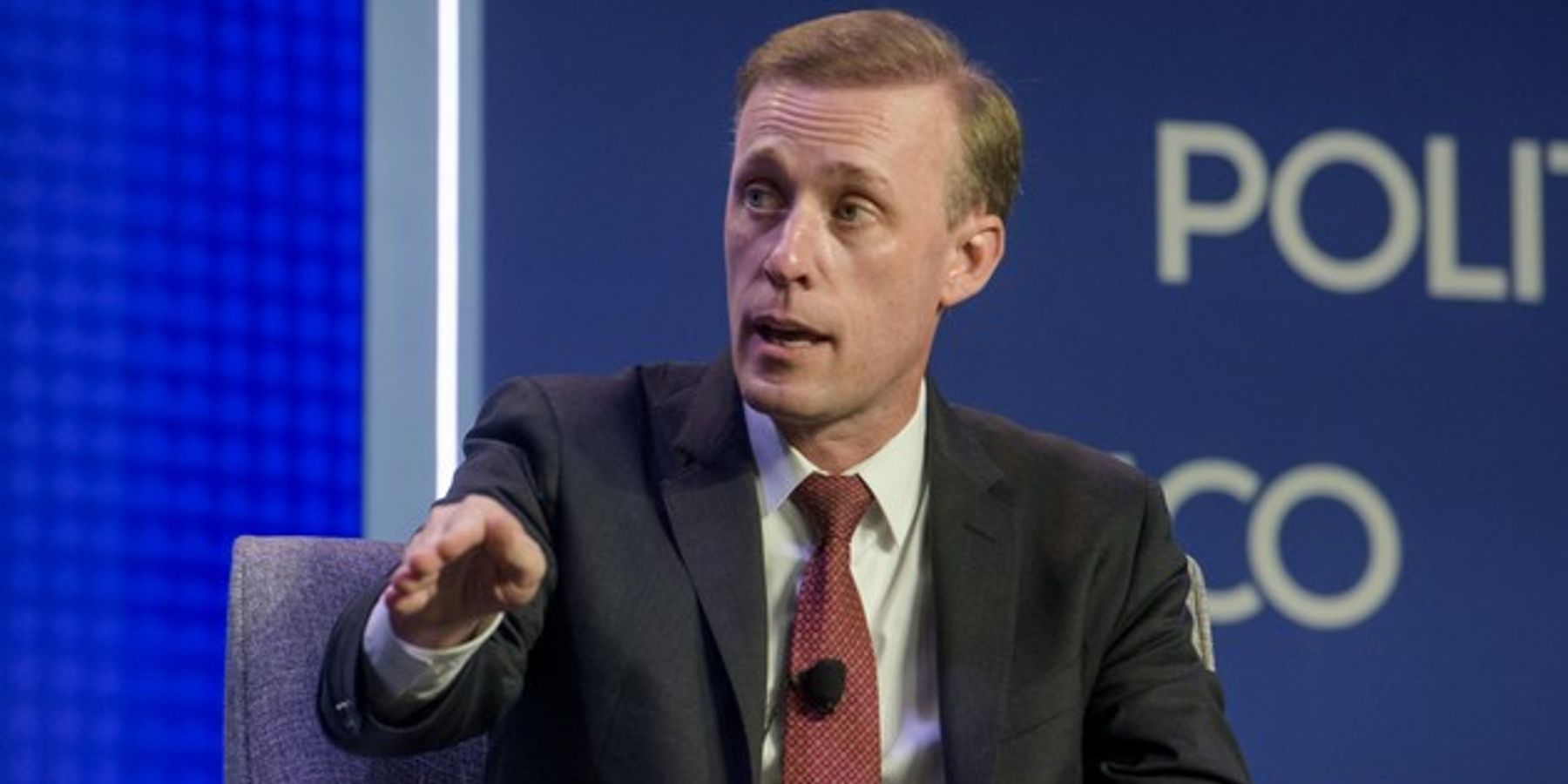It is an inevitable right of passage in Washington: every outgoing administration's senior officials have a chance to shake off the loss, find a golden sinecure, and then start crafting the narrative that they prefer, rather than the history that exists.
Jake Sullivan, Biden's National Security Director, spoke today at the POLITICO Security Summit on issues ranging from the Ukraine War peace talks, to Trump's meeting this week with Syria's new President Ahmed al-Sharaa and the ongoing Israeli war in Gaza. He is the newly installed Kissinger Professor of the Practice of Statecraft and World Order at the Harvard Kennedy School, and has plenty to say.
Bottom line, Trump may have forced diplomacy onto what has become an intractable, losing war for Ukraine, but according to Sullivan he's not doing a good enough job and isn't hard enough on Russia. Mind you the Biden administration did not pursue direct negotiations with Russia or even bring Moscow and Kyiv together like Trump was able to do today in Turkey. Under Biden, the U.S. continued to fuel the war with increasingly sophisticated weapons (of which our own stockpiles are now low) and impose sanctions, both of which have done nothing to put Ukraine in a better negotiating position today. In fact, most serious observers say Ukraine is a worse bargaining position than they were a year ago and the year before that.
Here is Sullivan verbatim (emphasis on irony mine):
Well, you know, I spent a lot of time in the transition with various officials in the Trump administration, and we spent a lot of that time talking about Ukraine, and what I said to them was, we are trying to tee you up for effect diplomacy with leverage. So in the months before we left office, we sanctioned Russia's oil sector, we surged weapons to Ukraine. We seized the proceeds of Russian assets and gave them to Ukraine. All steps that we took to put Ukraine in the best position on the battlefield, so that this administration and the Ukrainians would be in the best position at the bargaining table. And I said before I left office, 2025 should be a year of diplomacy, but that diplomacy should be standing behind Ukraine, imposing leverage on Russia and generating a good deal. And what worries me is that too frequently, over the course of the past 100 plus days, we've seen this administration take Russia's side of the issue and not use the pressure and leverage on Russia to improve the bargaining position of Ukraine. So I welcome diplomacy, but I would like to see it conducted in a way where President Trump actually follows through on his threats to impose greater pressure on Russia, because I think only then are you going to get the kind of deal that would be fair for Ukraine.
Sullivan followed the line that many of the official voices at POLITICO's confab took throughout the day: after three years of war in Ukraine, negotiations are finally happening, but since Putin did not agree to direct talks (as Zelensky tried to force) today in Turkey, it proves that Russia is not serious and should be punished, probably with more sanctions. This is perverse since a) no one had gotten this far in bringing all sides together at once since the war began and b) direct talks like these typically do not happen until groundwork is prepared by lower level diplomats on each side. That Zelensky is out there calling for sanctions today suggests this was a set up and a reason for Ukraine and its supporters to discredit the talks in the first place.
On the Iran talks, Sullivan supports a new deal, but says the agreement Trump appears to be forging with Tehran today is similar to the one he ripped up in 2018. That may be true. But he neglects to explain why after four years his boss President Biden was unable (or willing) to get the U.S. back into the deal. On Israel, he believes the Biden administration kept a lid on the Israelis' desire to slaughter and starve in Gaza, and that Trump is doing none of that.
Here's more:
"(A point) I would make to those who say the Biden administration didn't do enough, should have done more... that's a fair debate, and I'm happy to have it. But if you take that to the next level and say you had no impact whatsoever on Israeli policy, that Bibi did he wanted, I would just point out the reality of today, which is we are living through a period of weeks and weeks of no food, none going into Gaza, and of the Israeli government having a total free hand to do whatever it wants, wherever it wants, with no restraint anywhere in Gaza...What effectively seems to be the approach at this point is turn away and just say whatever goes just do it. And I think that that is a difference from our administration."
The irony is that if the Biden administration had tried to push more on the aid issue, if they had sent fewer offensive weapons to Israel to avoid the deaths of tens of thousands of civilians and widespread destruction in the strip, Kamala Harris might have won and Trump wouldn't be leading the U.S.-Israel policy in Gaza today. We know that from exit polling. Sullivan probably knows that too. His best bet now is to massage history. His students have a lot to learn.
- Istanbul 2.0: Know when to hold 'em, know when to fold 'em ›
- Biden official admits US refused to address Ukraine and NATO before Russian invasion ›
















